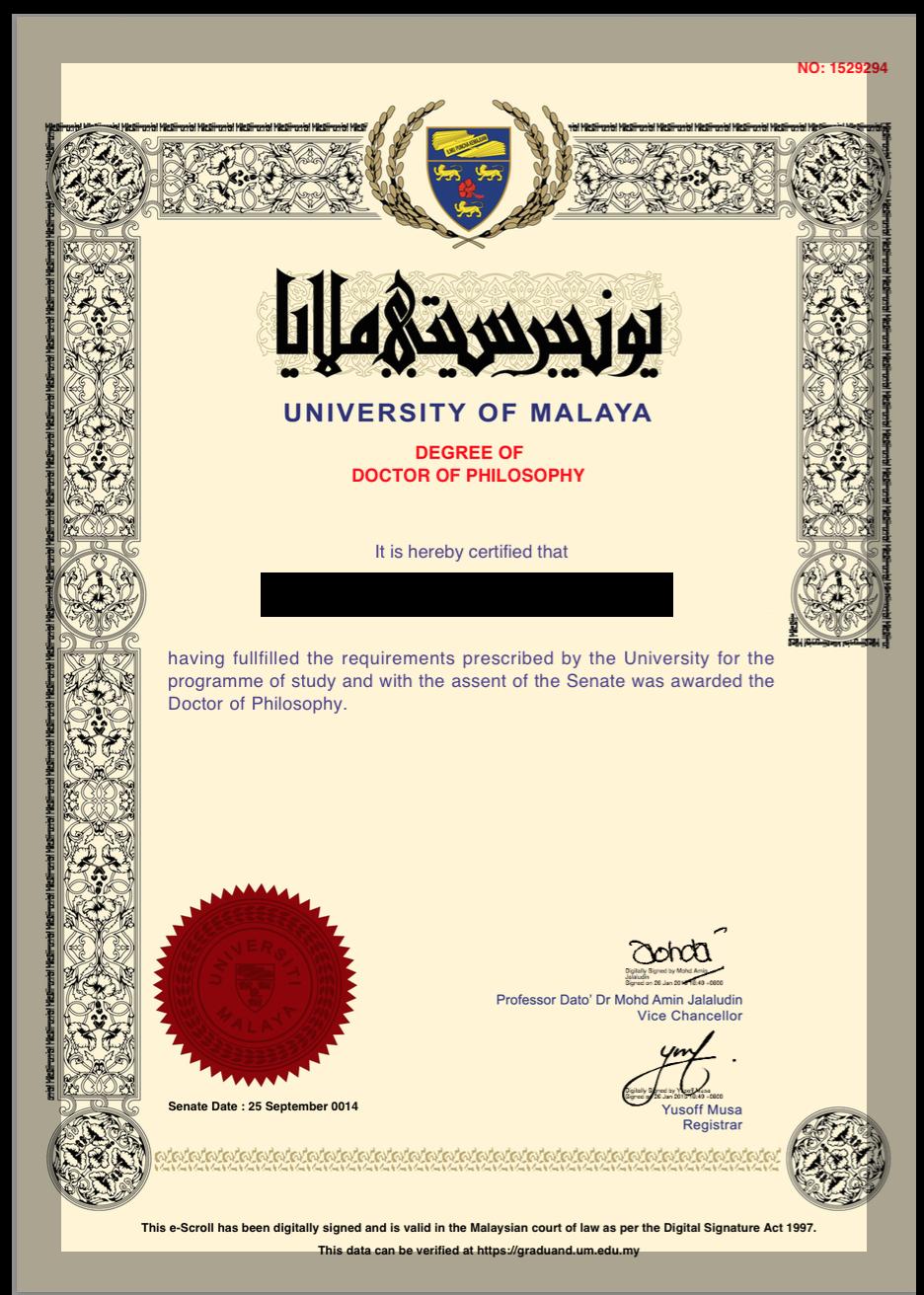University of Malaya, Malaysia's oldest public university has recently deployed a new system for issuing graduation certificate named e-scroll (it seems be the 1st university in the world to deploy e-scroll system). Under this new system, university will not issue any hard copy scroll (graduation certificate or degree) and instead provides a website from which graduates can download their electronically signed and timestamped degree in pdf format which can be printed out.
According to one of the officials, UM aims to produce digital degree certificates or E-Scrolls for its graduates to avoid forgery of certificate and ease employment process.
Some parts of the above links are here:
E-Scrolls now work exceptionally well for online applications or for employers who like to verify the authenticity of an applicant’s qualifications. When employers click on an E-Scroll, a PDF document containing the applicant’s degree certificate opens up. A verification tab will automatically pop up indicating that the digital certificate is verified and authentic. If information on the scroll has been modified, the verification tab will show up in red, indicating some form of tampering. They can also manually click on the digital signature panels to gain technical information on the certificate and signatories.
“UM also provides an alternate method of verification for its graduates through the Registry of Graduates website that contains the list of graduates,
According other fellows in the above links
The security of E-Scroll is based on a technology called Public Key Infrastructure. This is a proven technology that is widely used by governments worldwide to protect the e-passport, citizen identification cards, and by the financial institutions to secure transactions and online banking
Here and here are some articles discussion in depth about e-scroll and technology behind it.
Here is they problem: UM will NOT issue any hard copy scroll anymore meaning that we are unable to present original degree that is printed on a thick paper, has 3d stamp, and has hologram. Instead they issue a pdf that has some note on it and provide access to a website to show its authenticity.
If UM had both of the certificates, it would be wonderful since it satisfies both concern; those who need original degree and those who want to verify authenticity of the degree.
My question:
- How easy would it be to convince officials to accept such a e-scroll?
- Imagine a visa officer at port who wants to verify student's document before entry. If we tell him so, how likely is that he agrees? and he goes to his computer and opens the website? How can we say that the website is not fake? Manipulating university websites is not harder that forging a degree, I guess.
- Even if people trust the website and agree on usefulness of this approach, how practical it is that we expect governments to change their employment, verification, or other policies?
For instance, in my country, all degrees obtained from foreign countries must be take to the ministry of higher education for validation. Upon successful validation, the government party issue degree equivalency. Now here is the point that how easy is that for us to ask ministries to change their verification and validation process?
What is the best way to talk to University officials and ask them to issue both?
Do you know, as admission committee member or university administrates, what other problems new students graduated form UM will face in your university?
Here is the sample e-scroll

